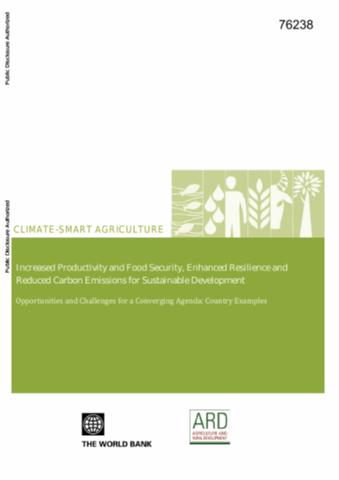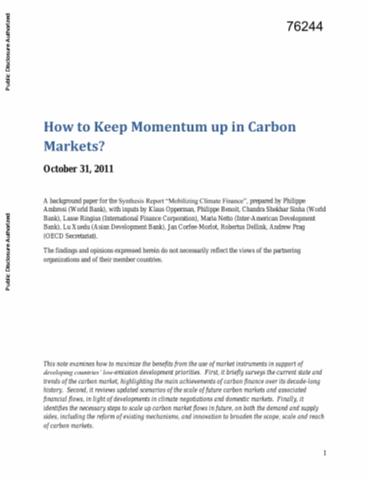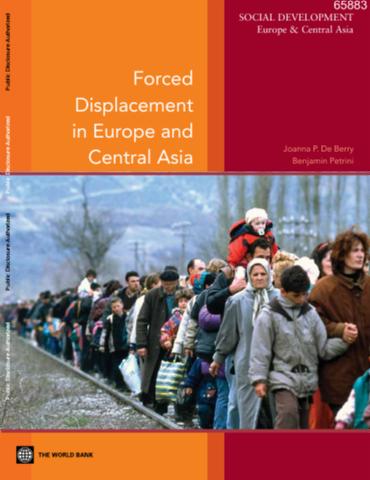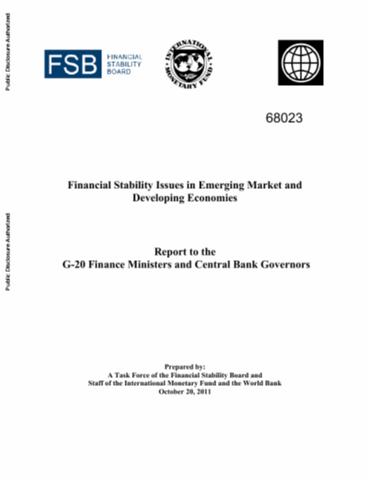The World Bank is a vital source of financial and technical assistance to developing countries around the world. We are not a bank in the ordinary sense but a unique partnership to reduce poverty and support development. The World Bank Group has two ambitious goals: End extreme poverty within a generation and boost shared prosperity.
- To end extreme poverty, the Bank's goal is to decrease the percentage of people living on less than $1.25 a day to no more than 3% by 2030.
- To promote shared prosperity, the goal is to promote income growth of the bottom 40% of the population in each country.
The World Bank Group comprises five institutions managed by their member countries.
The World Bank Group and Land: Working to protect the rights of existing land users and to help secure benefits for smallholder farmers
The World Bank (IBRD and IDA) interacts primarily with governments to increase agricultural productivity, strengthen land tenure policies and improve land governance. More than 90% of the World Bank’s agriculture portfolio focuses on the productivity and access to markets by small holder farmers. Ten percent of our projects focus on the governance of land tenure.
Similarly, investments by the International Finance Corporation (IFC), the World Bank Group’s private sector arm, including those in larger scale enterprises, overwhelmingly support smallholder farmers through improved access to finance, inputs and markets, and as direct suppliers. IFC invests in environmentally and socially sustainable private enterprises in all parts of the value chain (inputs such as irrigation and fertilizers, primary production, processing, transport and storage, traders, and risk management facilities including weather/crop insurance, warehouse financing, etc
For more information, visit the World Bank Group and land and food security (https://www.worldbank.org/en/topic/agriculture/brief/land-and-food-security1
Resources
Displaying 4571 - 4575 of 4907Increased Productivity and Food Security, Enhanced Resilience and Reduced Carbon Emissions for Sustainable Development
The purpose of this paper is to summarize the challenges and the practical successes that a selected number of countries are experiencing in moving towards 'climate-smart' agriculture while also meeting the food requirements of a growing population, broader economic development and green growth objectives. It complements papers prepared in 2010 on technologies and policy instruments, research, and farmers' perspectives.
How to Keep Momentum Up in Carbon Markets?
This note examines how to maximize the benefits from the use of market instruments in support of developing countries' low-emission development priorities. First, it briefly surveys the current state and trends of the carbon market, highlighting the main achievements of carbon finance over its decade-long history. Second, it reviews updated scenarios of the scale of future carbon markets and associated financial flows, in light of developments in climate negotiations and domestic markets.
Forced Displacement in Europe and Central Asia
This paper describes forced displacement in the Europe and Central Asia Region (ECA) and the vulnerabilities associated with being a displaced person. It analyzes the development challenges of forced displacement particularly protracted displacement in the region and the prospects for durable solutions. Displaced persons face challenges related to recovery of or access to housing and land, employment and livelihoods, access to services and public goods including health, education, and infrastructure, and accountable and responsive governance.
Financial Stability Issues in Emerging Market and Developing Economies
The focus of the paper is on five key financial stability issues in Emerging market and developing economies (EMDEs), which have been selected on the basis of their degree of materiality for a reasonably broad range of EMDEs; their implications for regulatory, supervisory or other financial sector policies; and the extent to which these issues are not already being addressed by other international work streams. The paper does not cover other financial stability issues that may also be relevant for EMDEs but are addressed in other G20/Financial Stability Board (FSB) work streams.
Financial Stability Issues in Emerging Market and Developing Economies
The focus of the paper is on five key financial stability issues in Emerging market and developing economies (EMDEs), which have been selected on the basis of their degree of materiality for a reasonably broad range of EMDEs; their implications for regulatory, supervisory or other financial sector policies; and the extent to which these issues are not already being addressed by other international work streams. The paper does not cover other financial stability issues that may also be relevant for EMDEs but are addressed in other G20/Financial Stability Board (FSB) work streams.









